Checking out with grace makes all the difference.

Leaving a hotel room isn’t just about tossing your bags in the car and rushing to the airport. It’s one of those small but meaningful moments where a little thoughtfulness can go a long way. How you exit a room says a lot about the kind of guest you are, and it can make life a lot easier for the people who tidy up after you—and possibly even score you a better experience next time you stay.
These simple, courteous actions take very little time but show appreciation for the hospitality you’ve received. While hotels don’t expect guests to scrub the bathroom or remake the bed, small gestures of respect are both noticed and appreciated. Doing these things won’t just give you a smoother check-out process—they also reflect kindness and awareness. The next time you’re zipping up your suitcase and heading out the door, take a few extra minutes to cover these essentials.
1. Toss out your trash neatly into one place.
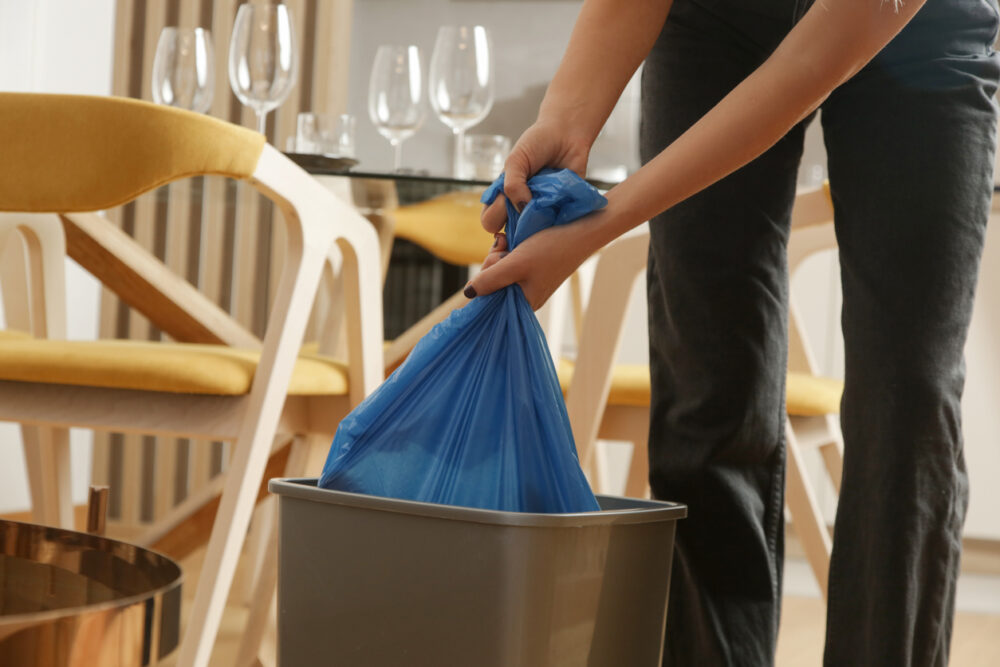
You don’t have to empty every bin, but collecting loose wrappers, used tissues, and empty bottles into one trash can makes a big difference. Housekeepers are often under tight time limits, and scattered trash can slow things down. You’re not expected to scrub the room, but a quick sweep of surfaces to toss obvious waste is simply considerate. Keep in mind, many cleaning staff have back-to-back rooms to prepare, so this tiny action helps more than you realize.
If there are recyclables, group them separately if possible. Stack paper coffee cups and fold pizza boxes—anything that makes the waste less chaotic helps. It’s not about doing someone else’s job. It’s just about not leaving behind a mess that screams “I didn’t care.” It’s a nice, subtle way of showing respect to the people who just made your stay more comfortable, according to Jen McCaffery at Reader’s Digest.
2. Put used towels in one pile, not all over.
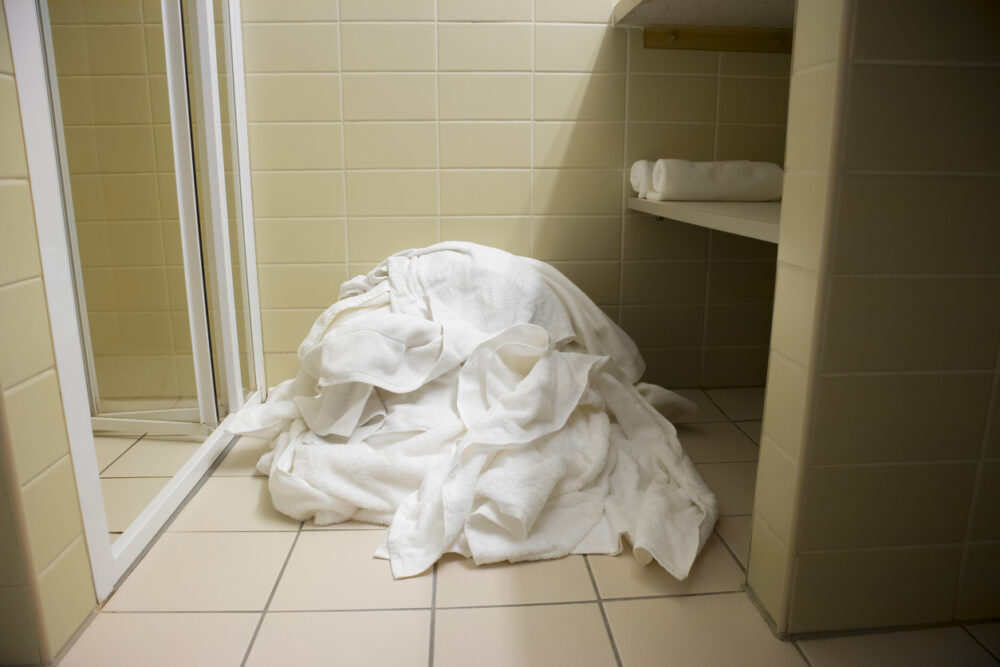
There’s no need to fold them or place them in a perfect stack, but gathering all used towels into one spot—ideally in the bathroom—helps the housekeeping team a lot. When towels are strewn across chairs, counters, and beds, it adds unnecessary steps for someone who has to gather them quickly and move on, as stated by Megan Wood at Oyster. Placing them in one pile says, “I get it—you’re busy.”
Lay them on the floor or in the tub if there’s space, depending on the hotel’s preference. Some hotels provide towel hampers, but if they don’t, just aim for a clean, centralized location. It’s not a big deal, but it’s a small, thoughtful act that shows you respect the labor of others. Housekeepers don’t expect perfection—they just appreciate the effort.
3. Check every outlet for chargers and cords.
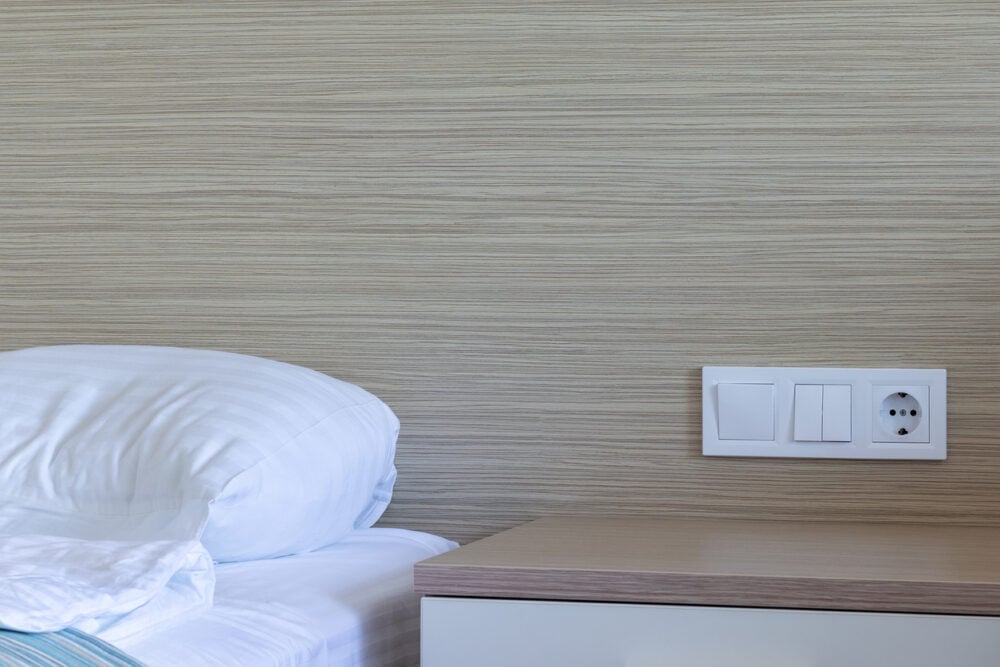
You’d be surprised how many people forget their phone charger or plug-in toothbrush behind. Take one last walk around the room and check every outlet, not just the ones near the bed. Look behind nightstands, under the desk, and in the bathroom, where that curling iron might still be warming up, as mentioned by Michele Herrmann at AAA. It only takes a minute, and it’s far less annoying than realizing you left your stuff behind once you’re already at the airport.
Even better, pack all your electronics and cords together the night before so you’re not scrambling in the morning. Having a designated tech pouch makes this even easier. Not only does this save you the hassle of calling the front desk later, but it also avoids the awkwardness of hotel staff having to dig through drawers for your personal items.
4. Give the bathroom a once-over.
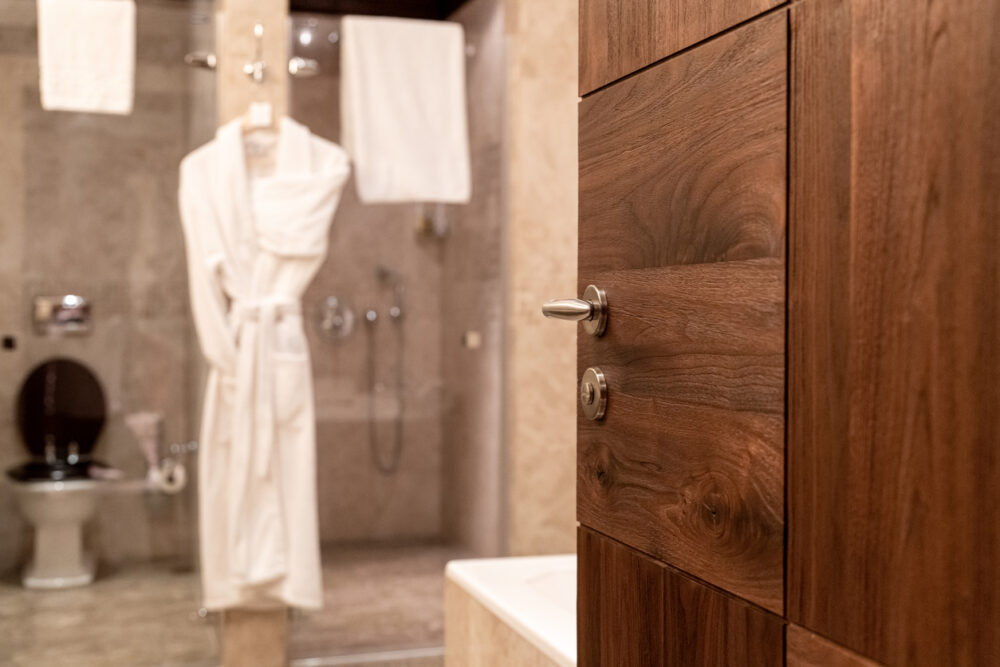
Before you head out, take a quick glance at the bathroom and make sure it’s not looking like a disaster zone. You don’t have to mop the floor, but wiping away any obvious mess like spilled makeup, toothpaste globs, or puddles near the sink is courteous. These little details, if ignored, make the room feel more like a crime scene than a space recently vacated by a thoughtful guest.
Make sure the toilet’s been flushed, and toss used tissues or paper towels in the trash. These are basic signs of respect that help set a different tone for the person walking in after you. You’re not doing it for a tip—you’re just being decent. It takes 30 seconds to restore some order to the scene.
5. Strip the bed only if it’s the hotel’s policy.
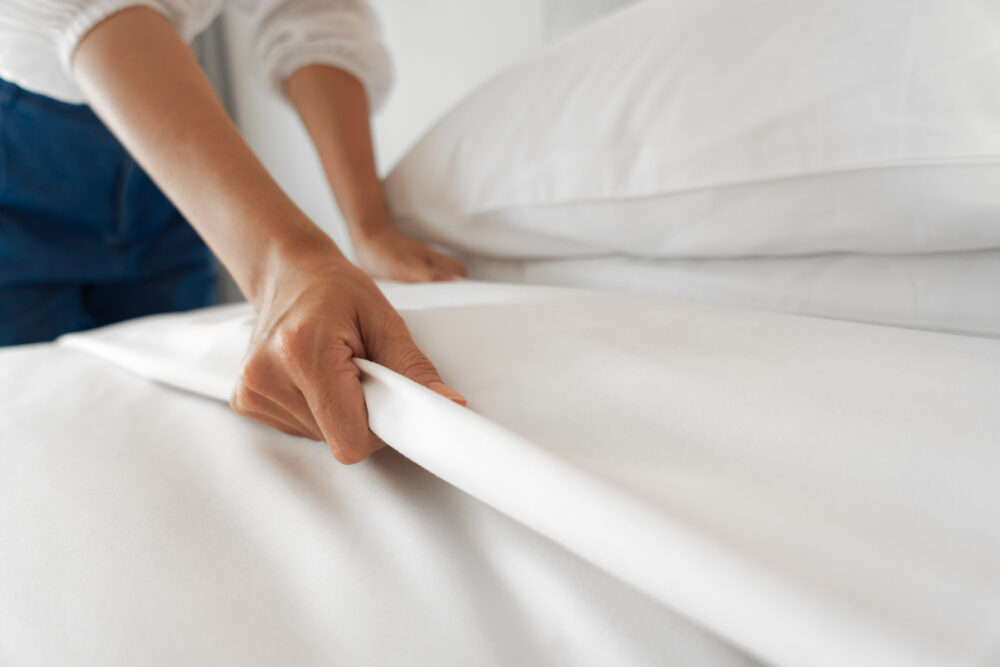
Some travelers instinctively strip the bed when checking out, thinking it’s helpful. But not all hotels appreciate this. Before pulling sheets off and piling them up, check if the hotel has a stated preference—many do, and some even leave a note in the room about it. If there’s no guidance, it’s often best to just tidy the bed a little without dismantling it.
If you do choose to strip the bed, place the linens in a neat bundle and leave the pillows aside. Don’t mix towels and bedding together. Just keep things simple and respectful. This habit only helps if done the right way, so when in doubt, ask or skip it. The goal is to be polite, not create extra work by breaking their routine.
6. Put furniture back where it belongs.
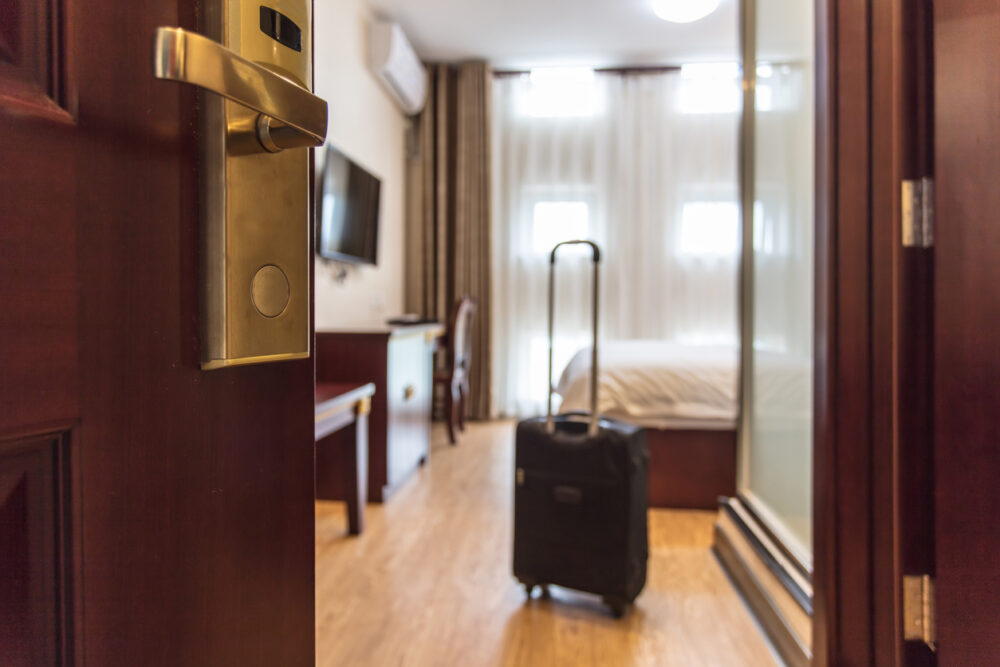
If you moved a chair to the window or dragged a bench closer to the bed, just slide it back before you go. Cleaning staff are accustomed to a certain room layout, and finding things rearranged can add extra steps to their job. You don’t need to obsess over the perfect angle of the desk chair—just put things back in roughly the right place.
This is especially true if you’ve used the room for a mini gathering or rearranged for convenience. Resetting it shows you respect the space and understand it’s not yours to leave in chaos. These are shared environments, and how you leave them speaks volumes about the kind of guest you are.
7. Leave the key cards at the front desk—or as directed.

Don’t assume that your digital check-out means you can toss the key cards in the trash. Many hotels reuse or recycle them, and some even charge if they’re not returned. If there’s a designated drop-off or box in the lobby, use it. If not, handing them directly to a staff member is a simple way to officially close out your stay.
Returning the cards also confirms your departure, which helps the hotel keep their room availability updated. It’s one of those last touches that makes the check-out process smoother for everyone involved. You’re not just ending your stay—you’re doing it the right way, with a final bit of courtesy.
8. Double-check drawers, closets, and under the bed.
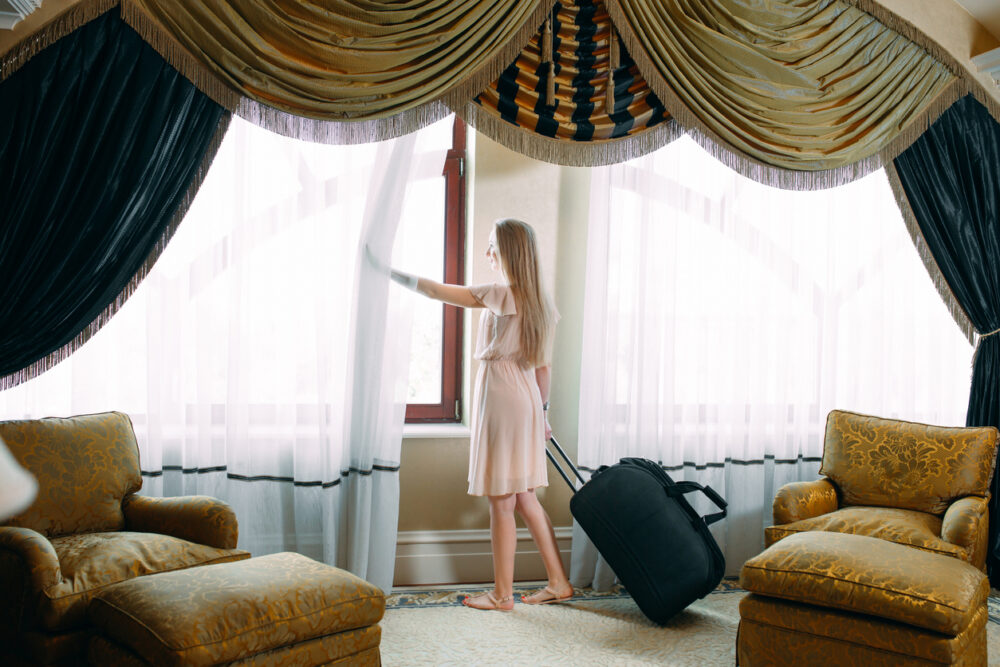
It’s easy to forget things that aren’t in plain sight. Socks hiding in the drawer, shoes kicked under the bed, or that favorite hoodie hanging in the closet—these things are often left behind during the morning rush. Do a slow, deliberate sweep of the room before walking out the door. It’s worth the few extra seconds.
This quick scan also gives you a final chance to confirm you’ve packed everything you came with. It’s a small habit that can prevent big headaches later. Plus, it helps hotel staff avoid the awkward job of contacting you about forgotten underwear or mystery items. Thoughtful guests finish strong, and this is part of that.
9. Tip the housekeeping staff if appropriate.

If tipping is customary in the area or you’ve had a longer stay, it’s a meaningful gesture to leave something for the housekeeping staff. A few dollars per day, left in a clearly marked envelope or note, shows appreciation for the people who made your space clean and comfortable. It’s not required, but it’s a gesture of respect that rarely goes unnoticed.
Even if you didn’t interact with them directly, their work played a big role in your experience. If the service was exceptional, consider leaving a little extra. Make sure the tip is clearly intended for housekeeping, so it doesn’t get mistaken or swept away. When in doubt, you can also hand it to the front desk and ask that it be given to the right person.
10. Tell the front desk if something’s broken or missing.

If you noticed a broken light fixture, a leaky faucet, or anything else that needs attention, mention it when you check out. Even if it didn’t ruin your stay, reporting it helps the hotel fix the issue for the next guest. It’s not about complaining—it’s about being helpful. Most front desk staff appreciate honest feedback delivered politely.
This also gives you a chance to mention anything you especially enjoyed—maybe the water pressure was great or the blackout curtains actually worked. Ending on a positive and constructive note makes your check-out feel less transactional. You’re not just a guest—you’re part of the cycle that helps keep hospitality running smoothly.
